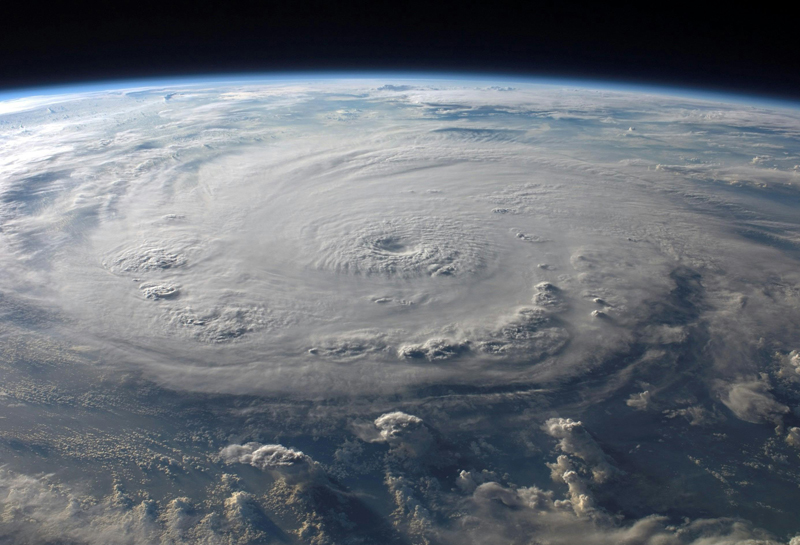Column: Dr. Ellen Slawsby On Hurricane Anxiety
 [Column written by Dr. Ellen Slawsby]
[Column written by Dr. Ellen Slawsby]
With Ernesto firmly under our belt and the world still watching the fallout of Helene, most of us are all too aware that we’re in the thick of a busy hurricane season. If you find yourself fatigued and stressed out by it all, here are some helpful tips to help you self-regulate and mentally prepare for the next one.
Will it or won’t it?
For some islanders, the worst thing about hurricane season is the uncertainty of it all: will that low pressure system turn into something that needs watching, will that named storm come our way, will it actually hit Bermuda?
Remember: nothing can take away your sense of mental wellbeing unless you allow it to. You can control your response to external stimuli, that is completely within your power. So, take a breath, and remind yourself, ‘this is a storm; I’m grateful we have warning systems available. We can heed those warning systems with a sense of control and order and calm.’
There are ways that we can mitigate the anxiety and manage our physical symptoms ahead of storms. The first is preparedness – making sure we have a list of what we need to do and taking care of those things will bring a sense of comfort and control. Knowing that your devices are charged, that the home has been prepared to weather the storm and that we have food and supplies at hand, will help us to feel that we have taken steps to meet the challenge.
When storms are headed our way, our adrenaline increases, and we experience a boost of energy; this is part of our innate Fight-or-Flight Response. Similarly, when the storm has passed, we can have a decrease in energy. That’s why it’s important to keep your energy levels as even as possible, by eating foods high in protein that balance your energy levels, instead of carbohydrates that can give you a rush and then drop precipitously. You’ll want to stock up on some comfort foods, look for those non-perishable, protein-rich snacks like nuts, peanut butter and oranges. Comfort foods are not necessarily the best foods in these types of situations.
When the storm never materialises
Many of us will feel a confusing sensation of relief combined with disappointment when a storm dematerialises or swerves off last minute. This is normal. Say to yourself, ‘that’s fabulous – the storm passed us by.’ We want to look at the positive side as much as possible. Of course, you’re going to feel tired after that fight or flight adrenaline boost, so give yourself permission to take a breath, lay down and recuperate.
The fight or flight response is wonderful – it helped you get ready for the storm that could have hit, but now that it has passed, you should give yourself sometime to rest and recalibrate both body and mind.
Be thankful that your body has the ability to go beyond its normal capabilities due to the fight or flight responses. That’s exactly what it’s there for – to be triggered in times of need. This was one of those times and your body has done its job.
When you know it’s going to hit
A day or two out and it’s tracking to be a dead-on storm – the initial excitement and flurry of activity may begin to ebb, and real dread can set in. Being overly stressed or anxious can cause you to freeze and the worst thing in an imminently dangerous situation is to freeze. So, we want to engage in short breathing techniques that can help to centre and focus our breathing. Take a deep breath and say to yourself, ‘I know we what I can do to prepare, I have a list, I am prepared.’
You may want to do some stretches or repetitive motions. Stopping to breathe and stretch, can be very effective in helping you prepare for the storm that’s on its way.
The most important thing we can do during times of anxiety or stress is to speak kindly to ourselves and others. Remind yourself, ‘I’m going to get everything done that I possibly can and that’s okay. I may not get everything done, but as long as I do as much as possible, that’s what matters.’
During the storm
When the storm is finally overhead, you can feel very powerless: there’s nothing more that can be done to ready yourself of your house. That’s why it’s important to take care of yourself at this point. Stop and become aware of your breath – it’s always with you. It is there, it is even, it is controlled. Focus on your breath.
Focus on the sound of the wind or the rain. It’s okay. It doesn’t have to be a focus on the negative howling, but the fact that you are safe, you are warm, you are dry. If you have a pet, you may want to pet it mindfully. You may want to hold something for comfort – this is important for children, especially. Think of the sensations that bring you comfort and use them – if it’s a cuddly blanket, curl up in it. If you find the sounds of classical music soothing, play it. You may want to cut an apple to smell something that brings you calm and joy.
As with any of life’s storms, take care of yourself like you would a frightened child. Give yourself loving kindness; the storm will pass, it always passes. You have weathered many storms in your life, and you will weather this storm, too.
Caring for others
Practice loving kindness: give them a hand to hold or provide a hug if they need it. Remind them that this storm will pass – they always do. Reinforce that you are prepared, that you are together, that you will meet this challenge side by side.
It’s okay to distract yourself and others. You can listen to music, tell stories, play games. This an opportunity to connect and care for our loved ones. You do not need to sit still in your anxiety.
- Dr Ellen Slawsby, Director of Pain Services at Benson-Henry Institute for Mind Body Medicine at Massachusetts General Hospital
Read More About
Category: All



